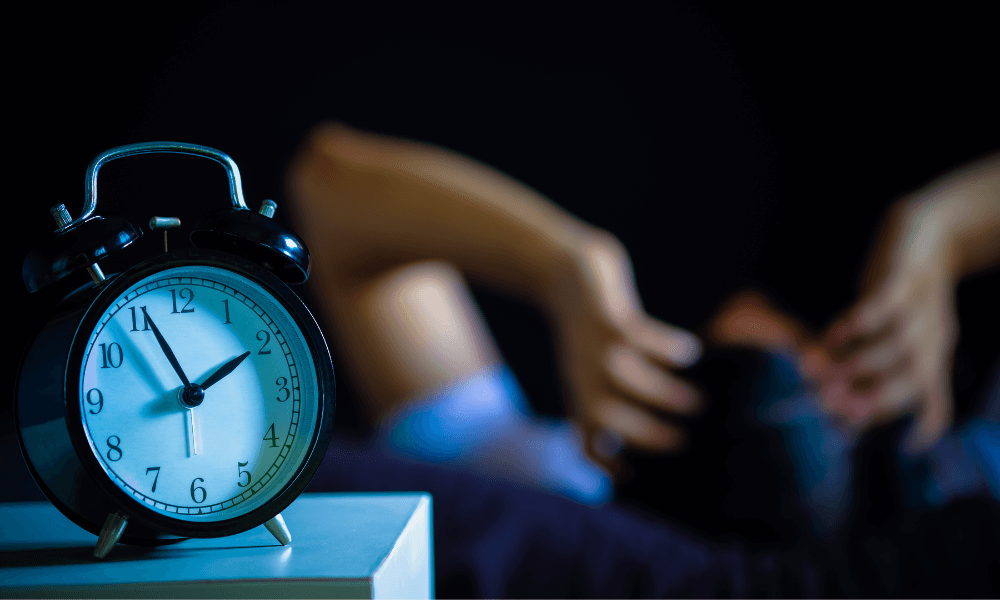Sleep. It’s essential for our physical and mental health, yet millions of people struggle with sleep disorders. These conditions disrupt sleep patterns, making it difficult to fall asleep, stay asleep, or get the quality rest you need.
This article dives deep into the world of sleep disorders, equipping you with the knowledge to recognize symptoms, understand diagnosis methods, and explore treatment options.
Understanding Sleep Disorders
What are Sleep Disorders?
- Definition: Sleep disorders are medical conditions that affect the quality, duration, or timing of sleep.
- Common Types: There are numerous sleep disorders, including insomnia (trouble falling or staying asleep), sleep apnea (breathing interruptions during sleep), narcolepsy (excessive daytime sleepiness), restless legs syndrome (uncontrollable urge to move legs), and circadian rhythm sleep disorders (disruptions to the natural sleep-wake cycle).
- Impact: Sleep disorders can significantly impact your daily life, causing fatigue, irritability, difficulty concentrating, and even health problems like high blood pressure and heart disease.
Diagnosis of Sleep Disorders
Symptoms and Signs:
- Recognizing Symptoms: Be aware of common sleep disorder symptoms like daytime tiredness, difficulty falling asleep or staying asleep, waking up frequently during the night, unrefreshing sleep, snoring, gasping for air during sleep, or excessive daytime sleepiness.
- Common Signs: Unusual behaviors during sleep, like sleepwalking, night terrors, or restless leg movements, can also be signs of a sleep disorder.
- Importance of Seeking Diagnosis: If you experience these symptoms for an extended period, seeking a diagnosis is crucial. Early intervention can improve your sleep quality and overall health.
Diagnostic Tests:
Several tests can help diagnose sleep disorders:
- Polysomnography (PSG): Considered the “gold standard” for sleep studies, PSG involves an overnight stay in a sleep lab where brain activity, breathing, muscle movements, and oxygen levels are monitored during sleep.
- Multiple Sleep Latency Test (MSLT): This test measures daytime sleepiness. You’ll take short naps at scheduled intervals following a nocturnal Polysomnography (PSG) to assess how quickly you fall asleep.
- Home Sleep Apnea Testing (HSAT): For suspected sleep apnea, a simplified home test may be used. It monitors breathing patterns and oxygen levels during sleep in your own bed.
Consulting Healthcare Professionals:
- Primary Care Physician: They can discuss your symptoms, medical history, and recommend further evaluation by a sleep specialist.
- Sleep Specialist: A doctor specializing in sleep disorders can perform a comprehensive evaluation, including tests, to diagnose your specific sleep disorder.
- Importance of Consulting Experts: A proper diagnosis from a healthcare professional ensures you receive the most effective treatment.
Treatment Options for Sleep Disorders
Lifestyle Changes:
Lifestyle modifications are often the first line of defense against sleep disorders:
- Establishing a Sleep Routine: Go to bed and wake up at consistent times each day, even on weekends, to regulate your body’s natural sleep-wake cycle.
- Creating a Relaxing Sleep Environment: Make your bedroom cool, dark, and quiet. Invest in comfortable bedding and pillows.
- Incorporating Healthy Sleep Habits: Avoid caffeine and alcohol close to bedtime. Exercise regularly, but not right before sleep. Develop a relaxing bedtime routine like taking a warm bath or reading.
Medical Interventions:
If lifestyle changes aren’t sufficient, your doctor might recommend:
- Pharmacological Treatments: Medications like sleep aids can help with insomnia. In some cases, medications are used to treat underlying conditions like depression or anxiety that contribute to sleep problems.
- Therapy Options: Cognitive behavioral therapy for insomnia (CBT-I) is a highly effective treatment that helps develop healthy sleep habits and manage stress that disrupts sleep.
- Surgical Treatments for Sleep Disorders: In severe cases of sleep apnea, surgery may be an option to open blocked airways.
Alternative Treatments:
Some people find relief with alternative approaches:
- Acupuncture and Acupressure: These traditional Chinese medicine practices involve stimulating specific points on the body to promote relaxation and improve sleep.
- Herbal Remedies: Certain herbs, like chamomile and valerian root, have shown potential benefits for sleep, but always consult your doctor before using them.
- Relaxation Techniques: Mindfulness meditation, yoga, and deep breathing exercises can help reduce stress and promote better sleep.
Mental Health and Sleep Disorders
Relationship between Mental Health and Sleep Disorders:
- Mental Health Conditions Linked to Sleep Disorders: People with pre-existing mental health conditions like bipolar disorder, PTSD, and ADHD are more likely to experience sleep problems. Conversely, chronic sleep disorders can increase the risk of developing mental health issues.
- Importance of Addressing Mental Health: If you suspect a connection between your sleep disorder and mental health, addressing both issues simultaneously is crucial for optimal well-being.
Cognitive Behavioral Therapy for Sleep Disorders:
- Definition of CBT: CBT is a form of psychotherapy that helps identify and change negative thoughts and behaviors that contribute to sleep problems.
- How CBT can Help with Sleep Disorders: CBT-I teaches relaxation techniques, sleep hygiene practices, and strategies to challenge negative thoughts that keep you awake.
- Benefits of CBT in Managing Sleep Disorders: CBT-I is a drug-free, effective treatment for many sleep disorders, providing long-term results.
Importance of Holistic Approach
A holistic approach goes beyond just treating the sleep disorder itself:
- Considering Overall Wellbeing: Factors like stress, diet, and exercise all play a role in sleep quality. Addressing these aspects can significantly improve sleep.
- Addressing Underlying Mental Health Issues: If mental health issues contribute to sleep problems, addressing them through therapy or medication can be essential.
- Encouraging Open Communication: Discussing sleep concerns with your doctor openly allows for a comprehensive evaluation and development of the most effective treatment plan.
Summary
Sleep disorders are prevalent, but understanding the symptoms, diagnosis methods, and treatment options empowers you to take control of your sleep health. By working with your doctor, exploring lifestyle changes, and potentially incorporating therapy or medication, you can achieve a good night’s sleep and experience the numerous benefits it brings to your physical and mental wellbeing. Remember, prioritize healthy sleep habits and don’t hesitate to seek professional help for a restful night and a brighter day.
At Avery Dental Wellness, we understand the significant impact sleep disorders can have on your overall health and well-being. While we specialize in dental care, we recognize the connection between oral health and sleep. Issues like snoring and sleep apnea can disrupt your sleep and contribute to daytime fatigue.
We are proud to offer Sleep Disorder Testing & Solutions in Dublin, OH. Dr. Emily Dennison is committed to providing comprehensive sleep disorder evaluations to identify the root cause of your sleep problems. We utilize the latest technology to diagnose sleep disorders like sleep apnea and explore treatment options, including oral appliance therapy.

